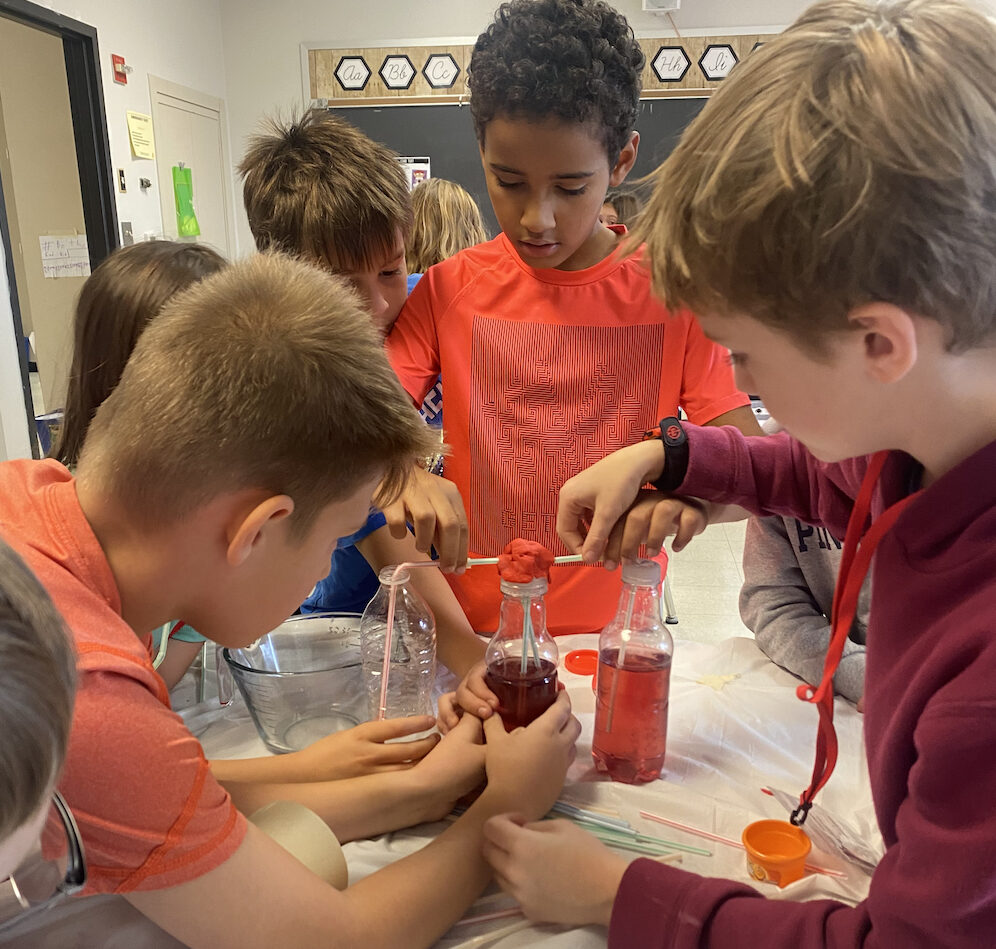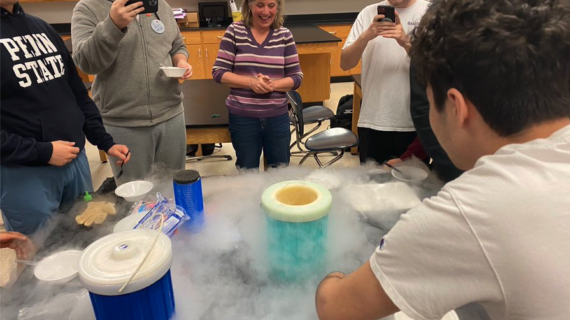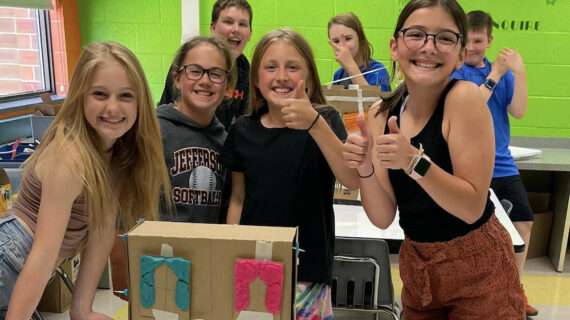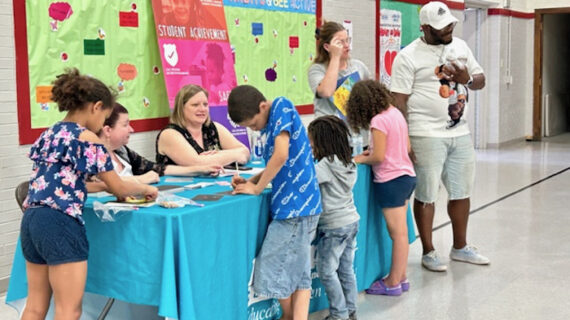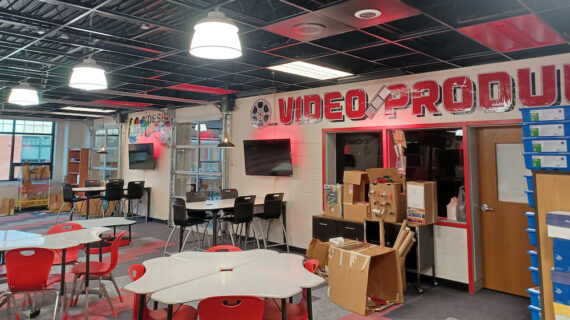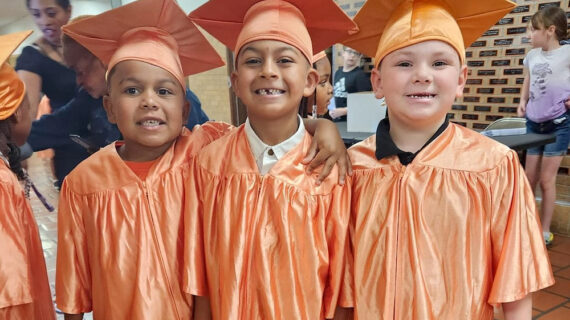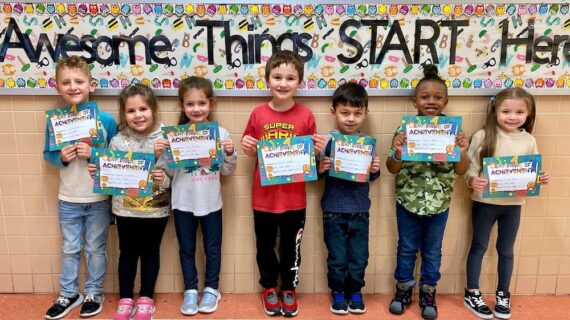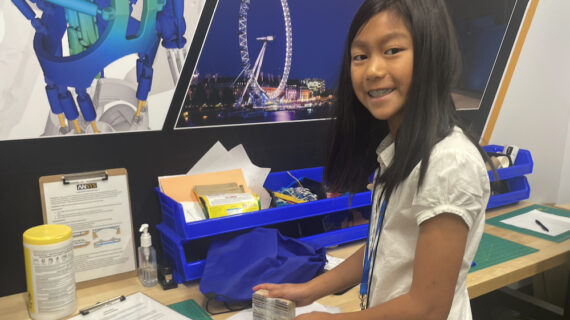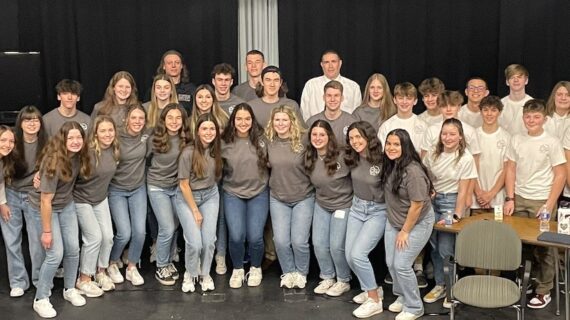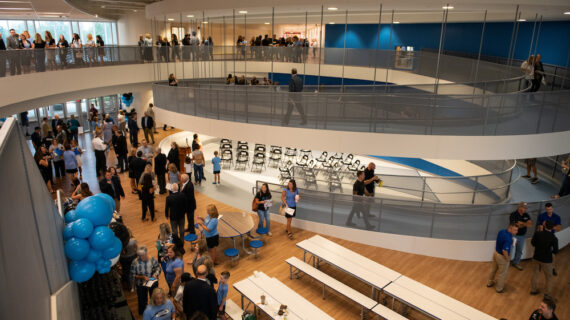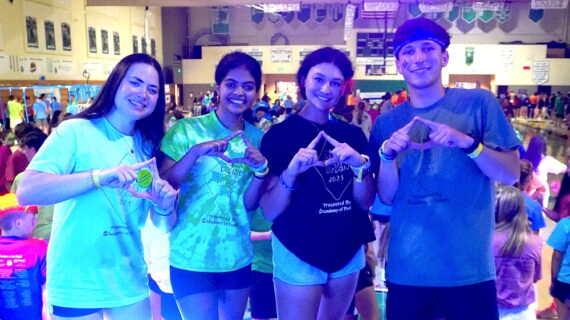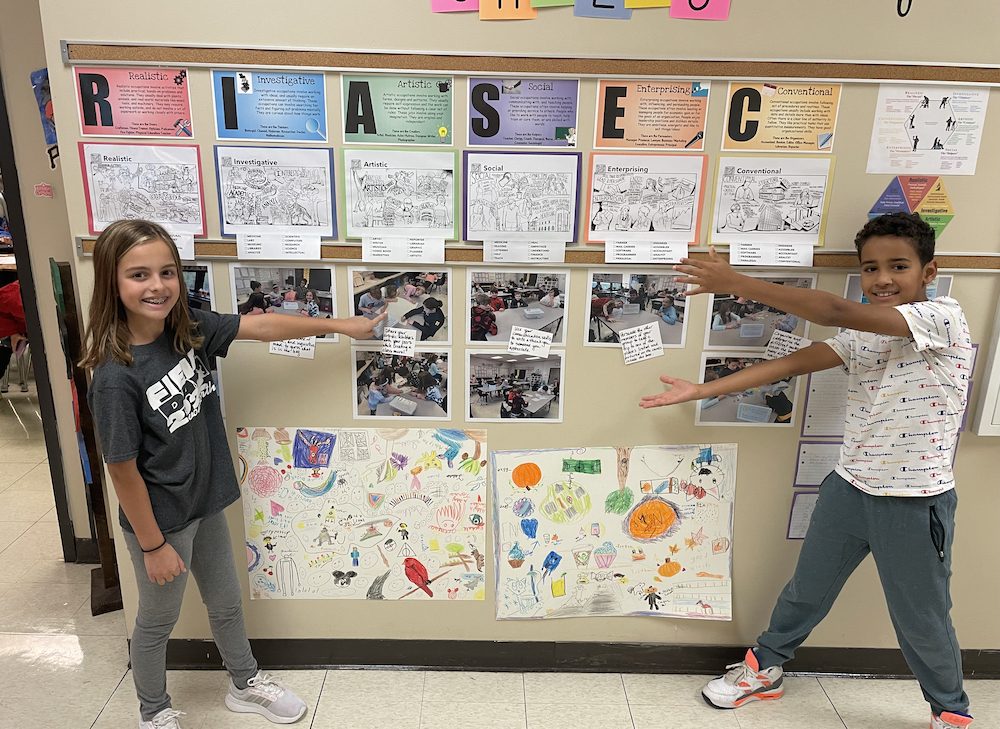
‘More accepted, more empowered and more valued’: Avonworth creates classrooms for all
This story is one in a series created in collaboration with the AASA Learning 2025 Alliance to celebrate the work of groundbreaking school districts in the Pittsburgh region. Kidsburgh will share these stories throughout 2023.
In any other district, she might have been forgotten. Neither ahead of her peers nor behind them, neither extra-outspoken nor ultra-withdrawn, she might have floated through school unnoticed, her strengths unrecognized and her needs unmet.
But not in the Avonworth School District, and not in Katie Libbon’s fourth-grade classroom.
It was there that the student first took the RIASEC, a science-backed assessment of her talents and interests. Designed to point her toward possible career paths, the survey told her something valuable — namely, that she was artistic, creative, and had plenty to offer the world.
And one day, during a group project in Libbon’s classroom, the student decided to share her talent.
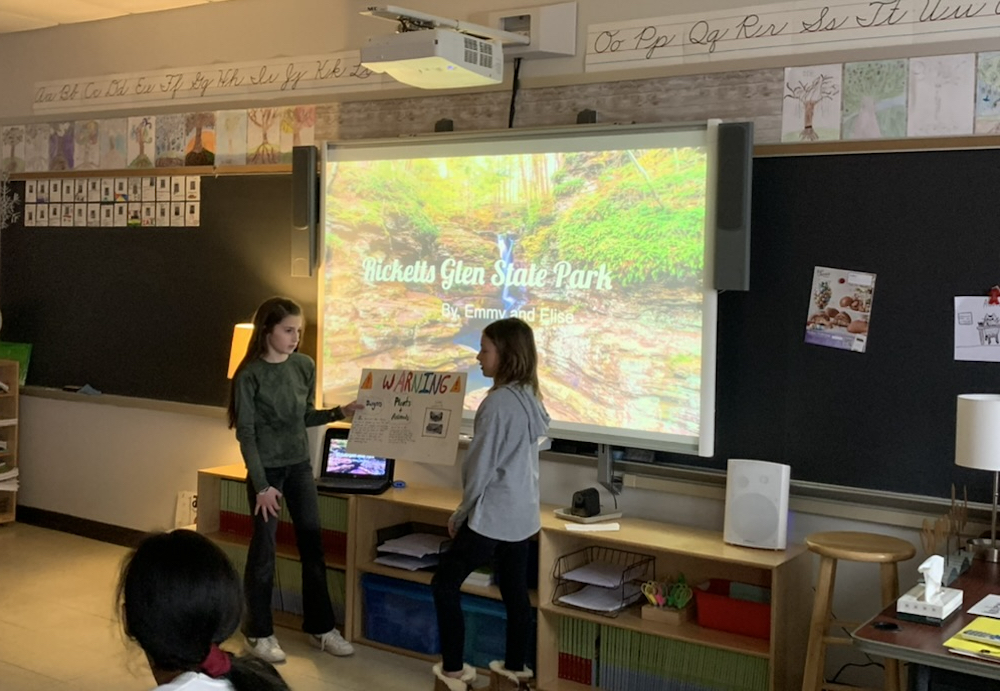
“She made a suggestion to her group. Just one little suggestion about how the project should look,” Libbon recalls. “And all of a sudden, she became the go-to girl for her peers. They started coming to her for all things artistic, asking, ‘What do you think about this? What do you think about that?’ And my jaw dropped, because it was just so lovely to see.”
This is the kind of classroom every student deserves, says Superintendent Jeff Hadley: a place to discover, develop, and assert one’s unique self. The fourth-grader in Libbon’s classroom “now feels more accepted, more empowered, and more valued than she did before,” he says. “And that’s a great example of how we create safer, more equitable environments” in the Avonworth School District.
The drive to build those environments led Hadley and his colleagues to join the Western Pennsylvania Learning 2025 Alliance, a regional cohort of school districts working together — and with peers around the country — to create student-centered, equity-focused, future-driven schools that prepare every learner for tomorrow.
“Right now, technology is moving faster than ever before,” says Hadley. “And it’s moving slower today than it will for the rest of our lives. We need to think about what that means for our kids. How can we, as educators, better equip them for the future?”
In Avonworth, one answer is World of Work, a framework that builds on the district’s renowned career-exploration program. Using the RIASEC survey, World of Work helps kids discover their unique personalities and skill sets: Realistic, Investigative, Artistic, Social, Enterprising, and Conventional. Equipped with newfound self-knowledge, students explore careers that match their strengths through classroom projects, hands-on experiences, and visits from real-world professionals.
First developed by the Cajon Valley School District near San Diego, Avonworth and a coalition of other districts from the Western Pennsylvania Learning 2025 Alliance have brought World of Work to the Pittsburgh region. These districts are tailoring the framework to the dreams and needs of local students, including the budding young artist in Katie Libbon’s classroom.
“The first time I saw [World of Work] in action, it was like something inside me woke up,” says Libbon. “I thought, ‘This is it. This is the direction we need to go. This is why kids come to school: for their futures.’”
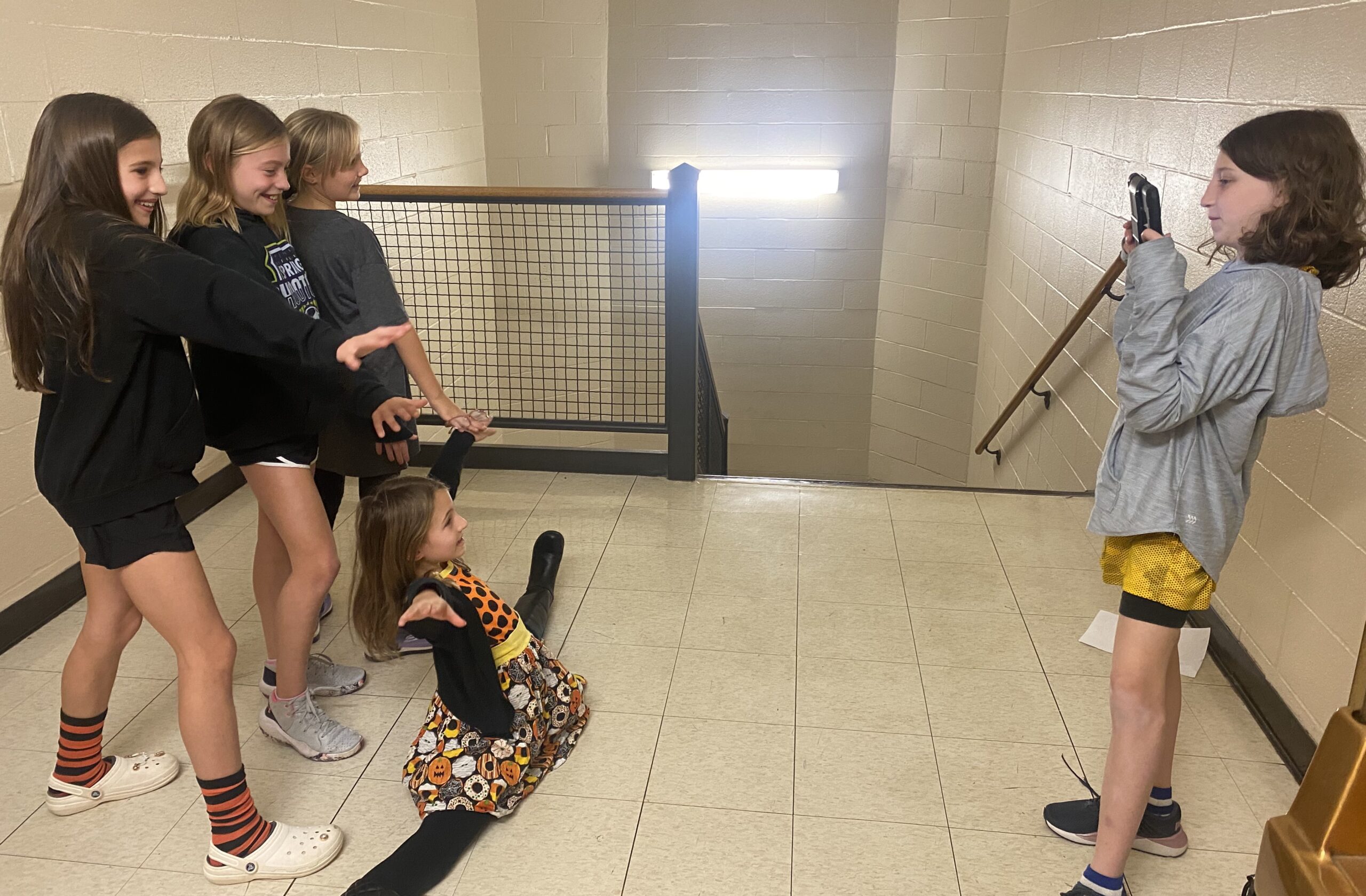
But with World of Work, “They’re coming up to me and saying, ‘Mrs. Kostewicz, we have someone who’s really good at math. They can help with the cost analysis. Now, we need someone who’s artistic to help with interior design.’ It’s so authentic — they get the connection between their lives and what they’re learning.”
Perhaps most importantly, Kostewicz says,“They start to see themselves as more than just fourth-graders.”
The result is excitement, engagement, and an eagerness for more. Though it’s still in the pilot phase, Avonworth’s fourth-graders have already spoken about World of Work to the district’s school board, giving them a taste of civic life and an opportunity to advocate for themselves and their peers.
To Hadley, that’s the real value of programs like World of Work.
“When we think about what it means to be future-ready, of course we think about work skills and possible jobs,” he says. “But being future-ready requires much more than that. It requires students to be citizens. It requires the confidence, tools, and virtues to succeed in a changing world. That’s how we’ll prepare our kids for tomorrow — whatever tomorrow might bring.”
Want to download this story? Click here for a PDF.
